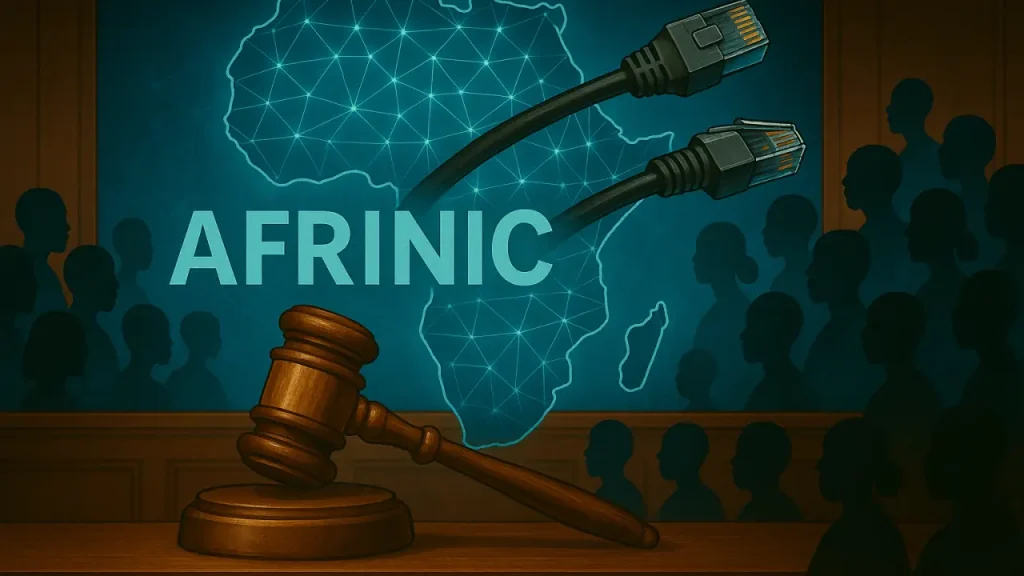- The revocation of Judge Bellepeau’s inspection mandate exposes a deep rift between AFRINIC’s internal rules and Mauritius’ legal system.
- Legal misalignment leaves Africa’s internet registry in paralysis, raising questions about accountability and state oversight.
A clash between law and governance
Mauritius’ recent decision to revoke Judge Nicolas Ohsan-Bellepeau’s mandate to inspect AFRINIC’s affairs has exposed a structural fault line between the registry’s internal bylaws and Mauritian corporate law. Acting President Jean Yvan Robert Hungley issued the proclamation on 21 August 2025, ending a brief appointment already halted by a Supreme Court injunction.
The inspector’s removal followed weeks of legal uncertainty. The court questioned whether the executive branch had the authority to impose oversight on a private, non-profit company under section 231 of the Companies Act. Bellepeau resigned on 18 August, citing the deadlock and doubts about his impartiality. The revocation that followed was not just a bureaucratic step — it was an admission that the country’s laws and AFRINIC’s internal constitution are out of sync.
Read more: ICANN or ICan’t? CEO Lindqvist chooses dictatorship over democracy in AFRINIC
When national law meets a regional body
AFRINIC operates as a Mauritian-registered company but serves a continental role as Africa’s Regional Internet Registry. This dual identity sits uneasily within the local legal framework. Its bylaws grant autonomy to members and its board, while the Companies Act grants the Registrar of Companies powers to intervene when a firm’s governance is in question.
Read more: Can ICANN intervene without legal standing? Parsing the court’s criticism
Risks to Mauritius and Africa
Mauritius has built its reputation as a transparent jurisdiction for international institutions. The AFRINIC dispute now tests that image. If state authority and judicial oversight cannot coexist with the governance structures of a global internet body, foreign confidence could erode.
For Africa’s internet ecosystem, the implications are even broader. AFRINIC allocates IP addresses and supports the continent’s routing infrastructure. A prolonged legal freeze undermines its credibility and could invite intervention from international bodies such as ICANN.
Also read: AFRINIC’s independence: Why rule of law must prevail over political interference
Why alignment matters
The AFRINIC case highlights a fundamental flaw in the governance of international organisations registered under domestic law. AFRINIC’s bylaws were written to ensure operational autonomy and member-driven decision-making. Mauritius’ Companies Act, on the other hand, is designed to safeguard public accountability through state supervision and judicial control. Both frameworks pursue legitimate goals, but they clash when one is imposed over the other without legal clarity.
Alignment between the two would not mean erasing AFRINIC’s independence. Rather, it would define how domestic institutions such as the Registrar of Companies, the Attorney-General’s office, and the courts interact with AFRINIC’s own organs of governance. Clear boundaries would help prevent both government overreach and internal opacity.
Such alignment could take several forms: explicit reference to relevant sections of the Companies Act within AFRINIC’s bylaws, legal protocols governing state appointments such as inspectors or receivers, and mutual recognition of oversight mechanisms between AFRINIC and Mauritius’ authorities. Without these safeguards, every future legal action risks being contested, delayed, or invalidated — as Bellepeau’s appointment showed.
It is also a matter of institutional credibility. AFRINIC represents Africa in a global system that relies on trust and predictability. Each governance crisis undermines the confidence of its members and international partners. For Mauritius, which has long marketed itself as a hub for digital and financial regulation, repeated intervention failures risk damaging its reputation as a host state capable of handling complex, multinational entities.
Ultimately, aligning AFRINIC’s bylaws with Mauritian corporate law would not only prevent further legal deadlock. It would reaffirm Mauritius’ commitment to rule of law while securing the stability of Africa’s only regional internet registry — a balance that is now urgently needed.

